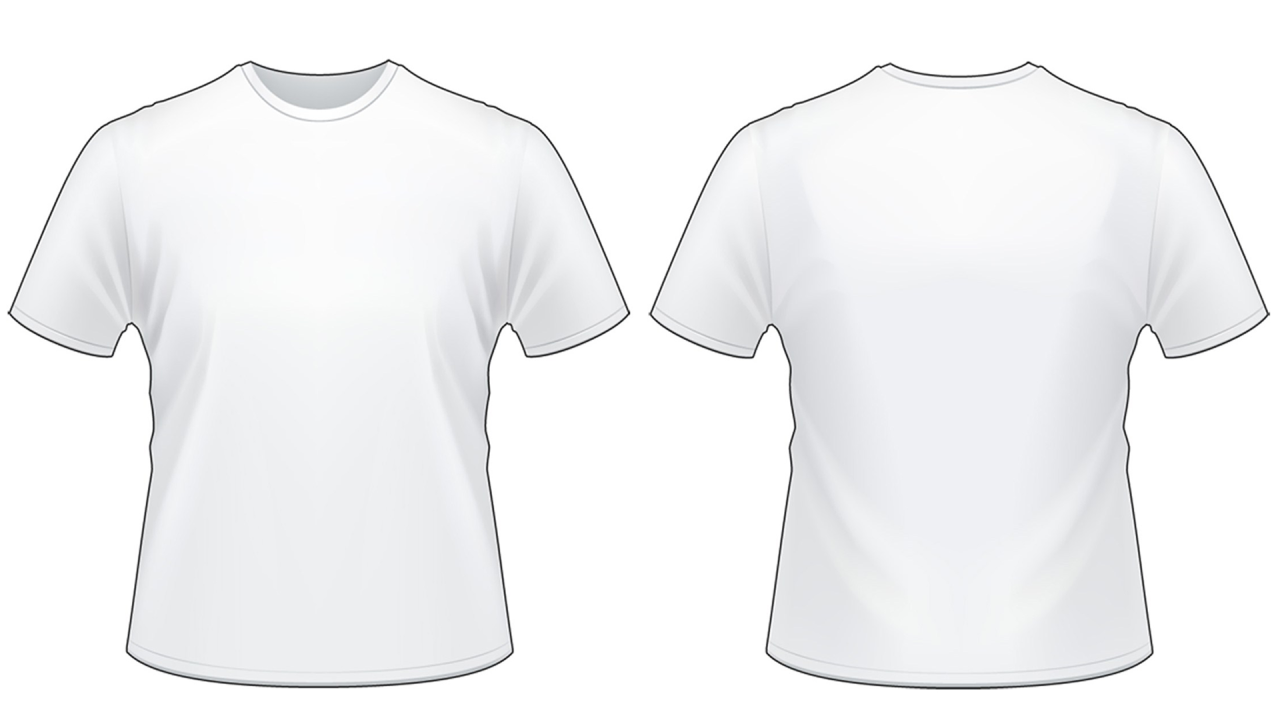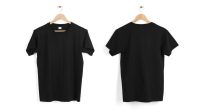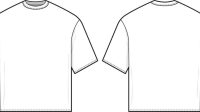
What Is a T-shirt Template?
A t-shirt template is a digital file that serves as a foundation for creating custom t-shirt designs. It provides a pre-defined layout, including the shape, size, and placement of essential elements such as the neckline, sleeves, and hem.
T-shirt templates are typically available in industry-standard file formats like Adobe Photoshop (.PSD), Adobe Illustrator (.AI), and Scalable Vector Graphics (.SVG). These formats allow for easy manipulation and customization of the design elements.
Benefits of Using T-shirt Templates
Utilizing t-shirt templates offers numerous advantages for both professional designers and individuals seeking to create their own custom t-shirts:
1. Time-Saving:
T-shirt templates eliminate the need to start designing from scratch, saving considerable time and effort. Designers can focus on the creative aspects of the design without having to worry about the technicalities of setting up the fundamental layout.
2. Accuracy and Consistency:
Templates ensure that t-shirt designs adhere to industry standards, such as the neckline shape and sleeve length. This consistency is especially crucial when producing t-shirts in bulk for businesses or organizations.
3. Versatility:
T-shirt templates are available in a vast array of styles and options, catering to diverse design preferences. Whether it’s a classic crew neck, a stylish V-neck, or a casual ringer tee, designers can find a template that aligns with their desired outcome.
4. Professional Appearance:
Using t-shirt templates contributes to a professional-looking design. The templates have been meticulously crafted to exhibit industry-best practices, ensuring that the final product exudes quality and sophistication.
5. Client Satisfaction:
For designers, t-shirt templates facilitate the seamless execution of client requests. By providing a clear and tangible foundation, designers can confidently present design options to clients, increasing the likelihood of meeting their expectations.
How to Choose a T-shirt Template
Selecting the right t-shirt template is paramount to achieving a successful design. Here are some key considerations:
1. Garment Type:
Determine the specific type of t-shirt you intend to design, such as a crew neck, V-neck, polo, or tank top. Each garment type has its unique template that aligns with its specific construction and design elements.
2. Design Style:
Consider the style of design you wish to create. Some templates are suitable for simple text-based designs, while others accommodate more intricate graphics or multi-color prints.
3. Print Method:
The print method you intend to use will influence the choice of template. Different printing techniques, such as screen printing or direct-to-garment printing, may have specific requirements or limitations that the template should accommodate.
4. File Format:
Choose a template that is compatible with your preferred design software. Popular file formats include .PSD, .AI, and .SVG, which offer varying levels of flexibility and editing capabilities.
Creating a Custom T-shirt Design Using a Template
Once you have chosen an appropriate t-shirt template, follow these steps to create your custom design:
1. Import the Template:
Open your design software and import the t-shirt template file.
2. Add Your Design:
Use the designated layers within the template to add your design elements, such as text, graphics, or images. Ensure that the elements are properly aligned and positioned within the template’s boundaries.
3. Adjust as Needed:
Make any necessary adjustments to the design, such as resizing elements, changing colors, or adding special effects.
4. Export the Design:
Once the design is complete, export it in a print-ready file format, such as .PDF or .EPS. This file can then be used for screen printing or other print production methods.
T-shirt Template Resources and Tips
Numerous online resources provide access to a wide selection of free and premium t-shirt templates. Here are a few popular options:
1. Canva:
Canva offers a user-friendly online design platform with a vast library of pre-made t-shirt templates.
2. Placeit:
Placeit specializes in t-shirt design and offers a comprehensive collection of templates in various styles and categories.
3. Freepik:
Freepik is a popular resource for free graphic design elements, including t-shirt templates.
4. Vecteezy:
Vecteezy provides a substantial collection of high-quality vector graphics, including t-shirt templates.
5. Behance:
Behance is a showcase platform where designers share their work, including t-shirt designs and templates.
Tips for Using T-shirt Templates Effectively
To maximize the effectiveness of t-shirt templates, consider these tips:
1. Experiment with Different Templates:
Explore various templates to find the one that best suits your design vision. Experimenting with different neckline shapes, sleeve lengths, and pocket placements can lead to unique and eye-catching results.
2. Customize Fully:
Don’t limit yourself to the template’s default settings. Customize the elements to create a truly original design that reflects your personal style or brand identity.
3. Pay Attention to Details:
Ensure that all design elements are carefully aligned and positioned within the template. Avoid overcrowding or excessive spacing to maintain a clean and balanced aesthetic.
4. Consider the Print Method:
Be mindful of the print method you intend to use and select a template that is compatible with that method. Some templates may require specific file formats or design considerations to ensure optimal print quality.
Frequently Asked Questions (FAQs)
1. What is the best file format for t-shirt templates?
For maximum flexibility and editing capabilities, .PSD (Adobe Photoshop) and .AI (Adobe Illustrator) are the preferred file formats for t-shirt templates.
2. Can I use t-shirt templates for commercial purposes?
The use of t-shirt templates for commercial purposes depends on the specific license terms associated with the template. Some templates may be free for personal use only, while others may require






